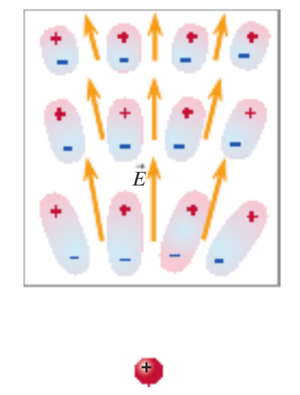Electric Dipole: Difference between revisions
No edit summary |
(Added Image of dipole) |
||
| Line 5: | Line 5: | ||
===An Exact Model=== | ===An Exact Model=== | ||
Since an electric dipole is made up of 2 electric point charges, the electric field of the dipole can be calculated by summing the electric fields contributed by each point charge. | Since an electric dipole is made up of 2 electric point charges, the electric field of the dipole can be calculated by summing the electric fields contributed by each point charge. In the example, the two field at point P,<math>E_P = E_P_q+ + E_P_q-</math> | ||
[[File:Dipole.png|300px|thumb|An Electric Dipole]] | |||
| Line 42: | Line 45: | ||
This section contains the the references you used while writing this page | This section contains the the references you used while writing this page | ||
[[Category: | [[Category:Fields]] | ||
Revision as of 22:45, 18 October 2015
An Electric Dipole is a pair of equal and opposite Point Charges separated by a small distance.
Mathematical models
An Exact Model
Since an electric dipole is made up of 2 electric point charges, the electric field of the dipole can be calculated by summing the electric fields contributed by each point charge. In the example, the two field at point P,[math]\displaystyle{ E_P = E_P_q+ + E_P_q- }[/math]

Examples
Be sure to show all steps in your solution and include diagrams whenever possible
Simple
Middling
Difficult
Connectedness
- How is this topic connected to something that you are interested in?
- How is it connected to your major?
- Is there an interesting industrial application?
History
Put this idea in historical context. Give the reader the Who, What, When, Where, and Why.
See also
Are there related topics or categories in this wiki resource for the curious reader to explore? How does this topic fit into that context?
Further reading
Books, Articles or other print media on this topic
External links
Internet resources on this topic
References
This section contains the the references you used while writing this page